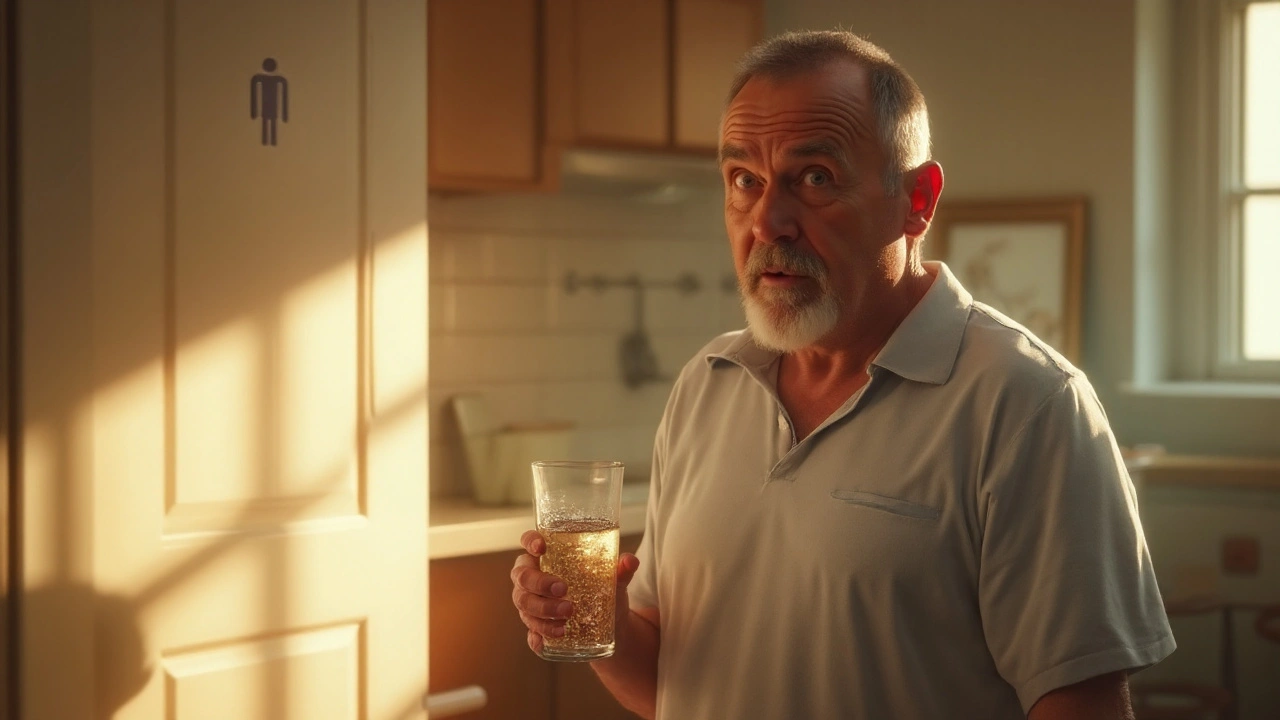Polydipsia: Why You’re Thirsty All the Time
Ever feel like you can’t stop drinking water, even after a glass? That constant urge is called polydipsia. It’s not just a quirky habit – it can be your body’s signal that something needs attention.
First off, remember that thirst is a normal way your body tells you to stay hydrated. But when you’re reaching for water every few minutes, it’s time to ask why. Below we break down the most common reasons and give you a quick checklist for deciding if a doctor’s visit is needed.
Common Causes of Polydipsia
1. High blood sugar – Diabetes (type 1 or type 2) is the top culprit. When glucose builds up in the blood, the kidneys try to flush it out, pulling water along and leaving you dehydrated.
2. Kidney problems – If your kidneys can’t concentrate urine properly, they lose more water, making you feel thirsty.
3. Medication side effects – Some drugs, especially diuretics and certain psychiatric meds, increase urine output and trigger thirst.
4. Dry mouth – Not the same as true polydipsia, but a dry mouth from mouth breathing, alcohol, or caffeine can make you drink more.
5. Psychogenic polydipsia – A less common mental‑health‑related condition where a person drinks excessively without a physical cause.
Usually, you’ll notice other signs alongside thirst: frequent urination, fatigue, blurry vision, or unexplained weight loss. Spotting a pattern helps you pinpoint the cause.
When to Seek Medical Help
If you notice any of the following, call a health professional:
- Drinking more than 3‑4 liters of water daily without feeling satisfied.
- Going to the bathroom more than 8 times a day.
- Feeling unusually tired, shaky, or dizzy.
- Unexplained weight loss or gain.
- Persistent dry mouth despite regular water intake.
A quick blood test can check glucose levels and kidney function. If you have diabetes, your doctor will likely adjust your medication or diet. For kidney issues, they might run imaging or urine tests.
In the meantime, here are a few practical steps you can take:
- Track how much you drink and when you feel thirsty. A simple notebook or phone note works.
- Limit sugary drinks and caffeine, which can worsen dehydration.
- Eat foods with water content – cucumbers, watermelon, soups – to stay hydrated without over‑drinking.
- Check your medications with a pharmacist to see if thirst is a known side effect.
Remember, feeling thirsty is natural, but constant, excessive thirst isn’t. Listening to your body and acting early can prevent bigger health issues down the road.
Got more questions about polydipsia? Talk to your doctor, especially if you have a family history of diabetes or kidney disease. A short visit can give you peace of mind and a clear plan.

Why Increased Thirst Often Comes with Frequent Urination - Understanding the Link
Explore why heightened thirst and the need to pee often go hand‑in‑hand, from diabetes to dehydration, with clear explanations and practical tips.